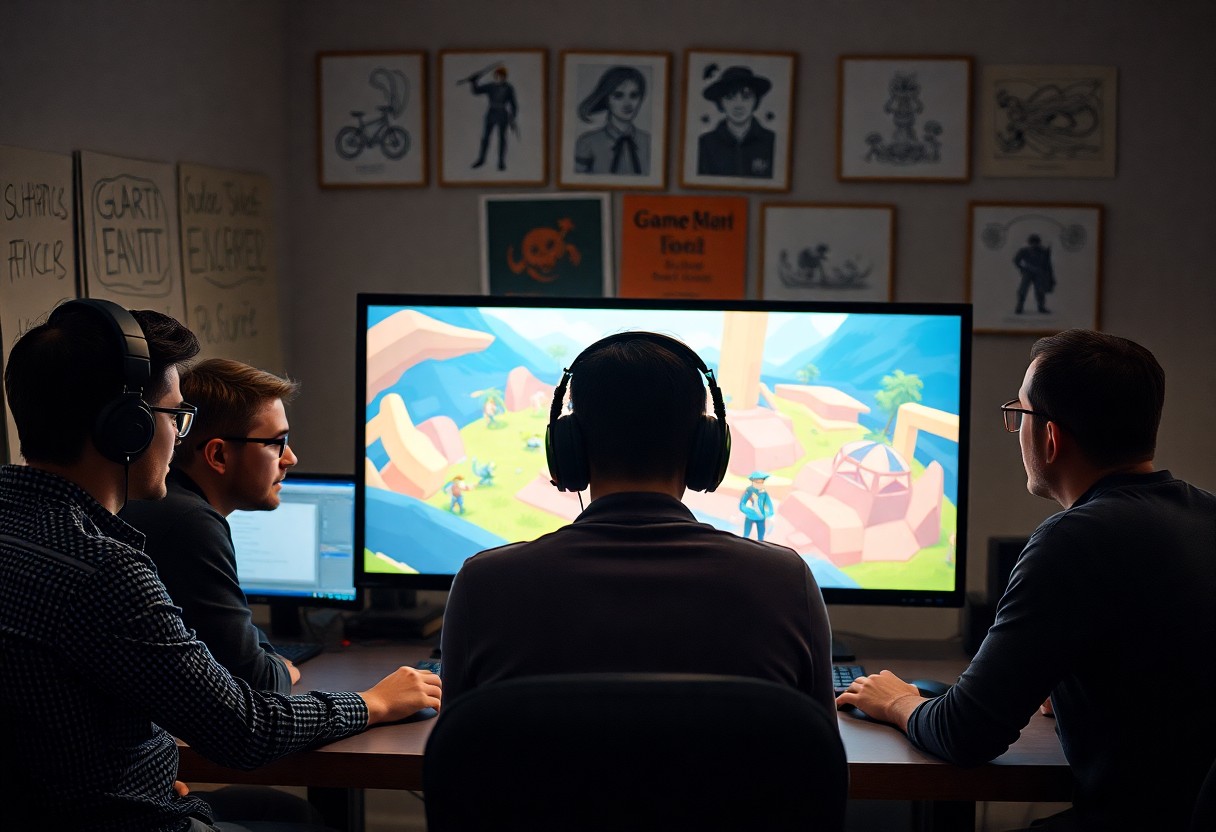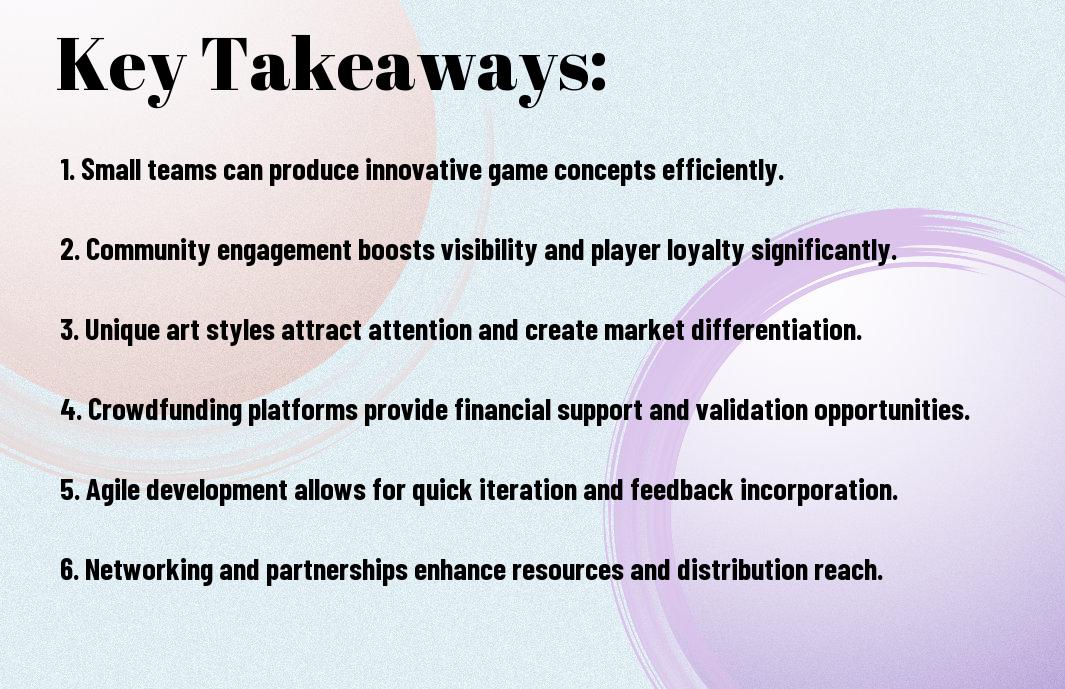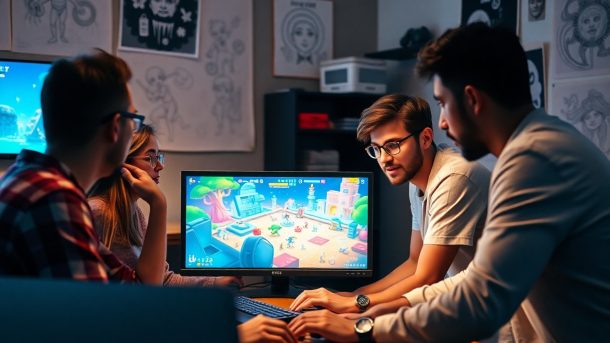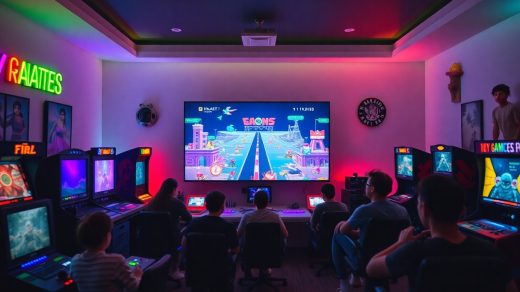As you explore the world of indie games, you’ll discover that your perception of what it takes to succeed in the industry may be challenged. You’ll find that small teams, with limited resources, can make a significant impact on the gaming landscape. Your curiosity about these successes will be piqued, and you’ll want to learn more about the stories behind these achievements, and how you can apply their strategies to your own projects, leading to a deeper understanding of the indie game development process.

Key Takeaways:
- Small game development teams can achieve significant success with the right combination of creativity, hard work, and strategic planning, as seen in the cases of indie games like Minecraft and Terraria.
- Identifying and catering to a specific niche or community can be a key factor in an indie game’s success, allowing for targeted marketing and player engagement.
- Word-of-mouth and community-driven marketing can be highly effective for indie games, with players often becoming passionate advocates for games they love.
- Indie games can take risks and innovate in ways that larger studios may not be able to, leading to unique and refreshing gaming experiences that resonate with players.
- Access to digital distribution platforms like Steam, GOG, and the App Store has democratized the game development industry, allowing small teams to reach a global audience.
- Building a strong relationship with the player community through updates, patches, and engagement can help sustain a game’s popularity and attract new players over time.
- Indie game success stories often involve a focus on gameplay and player experience over high-end graphics or expensive marketing campaigns, highlighting the importance of prioritizing core game development values.
The Rise of Independent Game Development
Before the advent of modern technology, independent game development was a daunting task, but with advancements in software and hardware, you can now create and publish games with relative ease, allowing your creativity to shine.
Evolution of Digital Distribution
Across various platforms, digital distribution has made it possible for you to access a wide range of games, and as a developer, you can now reach a global audience with your indie game, increasing your chances of success.
Democratization of Game Development Tools
Any aspiring game developer can now access professional-grade tools, enabling you to create high-quality games without a massive budget, and with the abundance of online resources, you can learn and improve your skills at your own pace.
Further empowering your game development journey, the democratization of game development tools has led to a proliferation of user-friendly engines like Unity and Unreal Engine, which offer you a wide range of features, assets, and communities to help you bring your vision to life, making it easier for you to focus on the creative aspects of game development.

Small Teams, Big Dreams
Some of the most successful indie games have been developed by small teams with big aspirations. You can achieve great things with a tight-knit group of talented individuals who share your vision. By leveraging each other’s strengths, you can create something truly remarkable, even with limited resources.
Resource Management and Creative Freedom
Flexibility allows you to take risks and pursue innovative ideas without being constrained by bureaucracy. You have the autonomy to make decisions quickly, which enables you to adapt to changes in the market and respond to feedback from your community.
Innovative Design Approaches
Opposed to traditional game development methods, indie games often thrive on unconventional design approaches. You can experiment with new mechanics, art styles, and narratives that set your game apart from bigger, more risk-averse studios.
Plus, as you research deeper into innovative design, you’ll find that it allows you to tap into your creativity and bring unique ideas to life. You can focus on crafting an experience that resonates with your target audience, rather than trying to appeal to a broader, more mainstream market. This approach enables you to build a loyal following and generate buzz around your game.
Marketing in the Indie Space
Once again, you’ll find that effective marketing is key to your indie game’s success, and it’s an area where small teams can make a big impact with creative strategies and limited budgets.
Community Building Strategies
Along with developing a great game, you’ll need to build a community around it, engaging with your audience and fostering a loyal following that will help spread the word about your game.
Social Media and Viral Marketing
Before you launch your game, you’ll want to establish a strong online presence, leveraging social media platforms to build hype and create a buzz around your game that will help it go viral.
Considering your social media and viral marketing strategy, you’ll want to focus on creating content that resonates with your target audience, using platforms like Twitter, YouTube, and Twitch to share updates, behind-the-scenes insights, and engaging stories that will help your game stand out in a crowded market, and encourage your community to share your content with their friends and followers, helping you reach a wider audience and build a loyal fan base.
Financial Models and Sustainability
After establishing your indie game, you’ll need to consider financial models and sustainability. You can learn more about the success of indie games by visiting Indie Game Rising: How Little Studios Are Creating a Huge Impact to understand the impact of small studios.
Pricing Strategies
Alongside your financial model, you’ll need to determine your pricing strategy, which will significantly impact your revenue and customer engagement, as you set a price for your game that attracts players and generates income.
Revenue Streams and Funding Options
One of the key aspects of financial sustainability is exploring various revenue streams and funding options, such as crowdfunding, investors, or in-game purchases, to support your game development and maintenance, allowing you to focus on creating a great gaming experience.
Another approach to revenue streams and funding options is to consider the long-term benefits of subscription-based models or sponsorships, which can provide a steady income and help you maintain a consistent player base, enabling you to continuously update and improve your game, ensuring your players stay engaged and loyal to your brand, and as you navigate the financial aspects of your indie game, you’ll be able to make informed decisions that support your game’s success.
Creative Vision and Authenticity
Many indie game developers have achieved success by staying true to their unique vision and creative direction. You can see this in the games that resonate with players on a deeper level, often because they reflect the developer’s personal experiences and passions.
Personal Stories in Game Design
Vividly, you can see how personal stories can shape the design of a game, making it more relatable and engaging for players. Your connection to the game’s narrative and characters can be strengthened when you know that the story is rooted in the developer’s own experiences.
Artistic Independence
Authentically, you can express your creative vision without compromise when you have artistic independence. Your game can stand out from the crowd, offering a fresh perspective that players may not find in more mainstream titles.
But as you examine deeper into the world of indie game development, you’ll find that maintaining artistic independence can be challenging. You’ll face decisions about funding, marketing, and distribution, all of which can impact your ability to stay true to your vision. However, many developers have found ways to navigate these challenges, and you can learn from their experiences to ensure that your game stays authentic and unique.
Breaking Through the Noise
Keep in mind that standing out in the indie game market can be challenging, as you face stiff competition from numerous other developers. You can learn more about the difficulties of monetizing an indie game by reading why making money off of an indie game is so damn hard to better understand the landscape.
Platform Selection and Timing
About the time you decide to launch your game, consider the platform and timing carefully, as these factors can significantly impact your game’s visibility and success, and you should choose the platform that best suits your game’s genre and target audience.
Strategic Partnerships
For your game to gain traction, forming alliances with influencers, content creators, or other developers can be beneficial, as you can leverage their audience and expertise to promote your game and increase its visibility.
Plus, when you engage in strategic partnerships, you can share knowledge, resources, and risks, which can lead to more innovative and successful game development, and you can also gain access to new markets, technologies, and talent, ultimately enhancing your game’s overall quality and appeal to players.
Conclusion
Summing up, you now have insight into the world of indie game success stories, where small teams make big impacts. You see that with dedication and the right approach, your own project can thrive. Your ability to learn from these examples and apply them to your work will be key to your success, allowing you to leave your mark on the gaming industry.
FAQ
Q: What are some notable examples of indie game success stories?
A: There are several notable examples of indie game success stories, including Minecraft, Terraria, and Cuphead. These games were created by small teams with limited budgets, but they went on to achieve massive commercial success and critical acclaim. Minecraft, for example, was created by Markus “Notch” Persson and later developed by Mojang, a small team of developers. The game’s unique gameplay mechanics and creative freedom resonated with players, and it became a cultural phenomenon. Similarly, Terraria and Cuphead were created by small teams of developers who poured their hearts and souls into the games, and their dedication paid off with massive success.
Q: How do small teams of indie game developers manage to make big impacts in the gaming industry?
A: Small teams of indie game developers are able to make big impacts in the gaming industry by being agile, innovative, and passionate about their projects. They often focus on creating unique and engaging gameplay mechanics, and they are not afraid to take risks and try new things. Additionally, many indie game developers are able to connect directly with their players and build a community around their games, which can help to generate buzz and drive sales. Social media and online platforms have also leveled the playing field, allowing small teams to reach a large audience and compete with bigger studios. By being adaptable, creative, and dedicated, small teams of indie game developers can achieve big things and make a lasting impact on the gaming industry.
Q: What lessons can be learned from the success of indie games, and how can aspiring developers apply these lessons to their own projects?
A: One of the key lessons that can be learned from the success of indie games is the importance of staying true to your vision and creating a game that you are passionate about. Many successful indie games were created by developers who were driven by a desire to bring their unique ideas to life, rather than by a desire to make a quick profit. Aspiring developers can apply this lesson by staying focused on their goals and not compromising on their vision, even when faced with challenges and setbacks. Another lesson is the value of community engagement and building a relationship with players. Indie game developers often engage with their players, gather feedback, and use it to improve their games. By doing so, they build a loyal fan base that helps to spread the word about their game. Aspiring developers can apply this lesson by being active on social media, attending gaming events, and soliciting feedback from players to create a better gaming experience.



